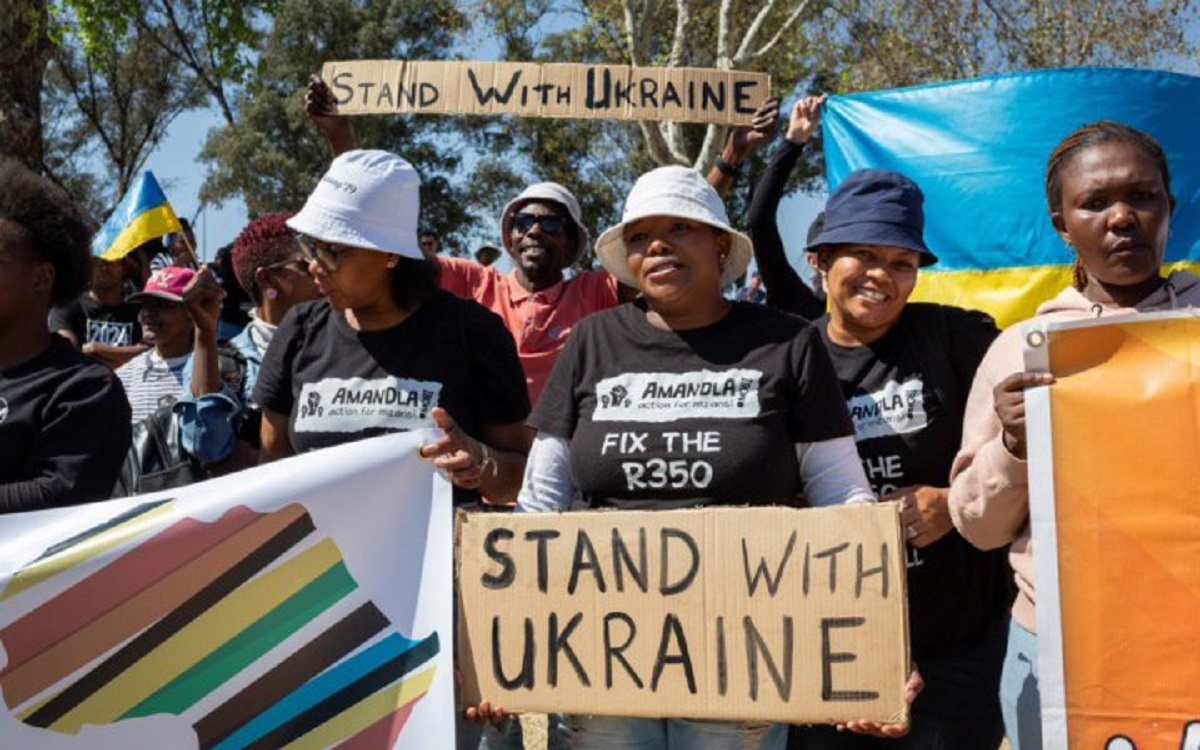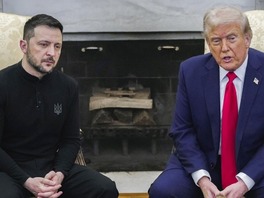While Ukrainians closely monitor the unfolding events related to aid from the United States and the European Union, Ukrainian diplomatic efforts have discreetly made a noteworthy advancement in Africa. On December 27, Ukraine opened its embassy in Ghana, with the expectation of opening several more embassies in Africa in January. This marks a strategic move in the longer-term process of building Ukrainian ties with African nations, which could yield substantial benefits. For more details, refer to the article on Apostrophe.
The status quo and plans
Ghana stands out as one of the most stable and democratic countries in West Africa, positioning itself for regional leadership in the area.
‘Furthermore, Ghana maintains a positive disposition towards Ukraine, consistently endorsing all resolutions at the United Nations,’ analyst Martha Oliynyk-Dyomochko of the Global Ukraine Foundation explains.
‘We are open to considering any proposals for collaboration with Ghana, particularly in areas such as agricultural technologies, IT, energy infrastructure, and green energy. For instance, we could contribute to the country's digital transformation,’ Special Representative of Ukraine for the Middle East and Africa, Maxym Subkh comments.
These are the key pillars of Ukraine's relations. However, Ukraine's interest in Ghana and the entire сontinent developed belatedly, only after Russia started full-scale unjustified war with Ukraine. Until recently, there were only 10 embassies for the entire continent with its 54 countries.
Our diplomacy has only recently begun giving full attention to this region. Following the onset of Russian full-scale invasion, Ukrainian Foreign Minister Dmytro Kuleba embarked on two extensive tours to African nations. Additionally, he made separate visits to several countries, signaling a heightened focus on the continent.
In response, a significant joint delegation from South Africa, Egypt, Senegal, Uganda, Zambia, the Republic of Congo, and the Comoros Islands visited Kyiv in June last year.
While discussions at that time mainly revolved around mediating between Kyiv and Moscow—an aspiration that, as known, remained unrealized among certain African politicians—the increasing interest of warmer climes toward Ukraine became glaringly apparent.
Consequently, the next in line for embassy openings are in eight countries: Rwanda, Côte d'Ivoire, the Democratic Republic of the Congo, Mozambique, Sudan, Botswana, Mauritania, and Oman.
‘Confident that we will be able to announce the opening of some of these embassies as early as January,’ Subkh says.
The economy is crucial
In the context of Africa, Ukrainian agricultural exports often take the spotlight. While indeed a crucial component, it is not the sole aspect.
‘Import dependency persists across various sectors of African economies. Specifically, 38 nations on the continent remain net importers of agricultural products. The steady population growth ensures a consistent rise in imports,’ Subkh stresses.
In the past, Egypt stood as Ukraine's primary partner for grain supply. However, an increasing number of companies are now exploring the option of relocating the logistical hub to Morocco.
‘This elongates the logistical journey. While Alexandria, Egypt's main port used to be situated near the Bosporus exit, the new route requires navigating the entire Mediterranean Sea and even reaching the Atlantic Ocean. On the flip side, it provides the opportunity to plan our presence not only in West Africa but also in Sub-Saharan,’ Vice President of the Ukrainian Chamber of Commerce and Industry, Valeriy Korol, emphasizes in a comment to Apostrophe.
Other crucial components of Ukrainian exports include ferrous metals and oil. Undoubtedly, there's formidable competition from numerous powerful players. However, a few sectors show promise. According to Valeriy Korol, it is essential to increase the share of high-value-added production.
‘The African continent has a keen interest in small agricultural machinery – tractors, seeders, and the like. The production and sale of such equipment in Africa also entail the establishment of service networks. Creating service centers for Ukrainian agricultural machinery is a highly promising avenue. Importantly, this allows for strategic planning of our presence in the medium and long term. The establishment of joint Ukrainian-African ventures and the engagement of local experts are particularly valued,’ Korol says.
It іs worth noting a distinct interest in Ukrainian IT products. According to sources cited by "Apostrophe," many African countries are actively undergoing digitization processes, particularly concerning administrative services.
Common security
‘It is crucial to understand that when discussing collaboration with African countries, we are referring to a mutually beneficial partnership with a focus on the long and medium-term perspective’, the Ambassador Extraordinary and Plenipotentiary of Ukraine to the Republic of South Africa, Botswana, and Mozambique, Lyubov Abravitova, shares insights with Apostrophe.
According to her, African countries are feeling the repercussions of Russian aggression, and many of them are at a point where they are questioning why Ukraine is crucial in various aspects of international security.
A vivid example is the situation in the Sahel region, located in Western and Central Africa on the border between the equatorial forests and the Sahara Desert, where instability has prevailed in recent years. Local separatists, smugglers, radical Islamists, as well as Russian ‘Wagner’ mercenaries and Russian intelligence services, are taking advantage of the situation. One of the Kremlin's key objectives in this region, alongside destabilization, is to weaken France's traditional influence in the area.
‘We must understand that when we talk about "Wagnerites," it's not just military groups operating in Sudan, Mali, Central Africa; it's a whole empire involved in exporting money, gold, and other valuable assets. As far as I know, they are still operational. There might have been disruptions in their logistical chains at some point. Part of them left after the Prigozhin uprising but later returned. Ghana, as mentioned, is one of the countries consistently criticizing their presence. It advocates for forming its own regional forces and has its own counterterrorism strategy. So, we share common values and objectives with Ghana,’ Martha Oliynyk-Dyomochko states.
In this context, it's worth recalling an attention-grabbing incident. In September of this year, the American channel CNN reported that Ukrainian intelligence services might be behind a series of drone strikes and a ground operation aimed at the "Wagnerite"-backed militia near the Sudanese capital. At that time, Andriy Yusev from the Main Intelligence Directorate neither confirmed nor refuted the information but referenced General Budanov's statement that Ukraine would eliminate Russian war criminals anywhere in the world.
Speaking positively and advocating in the UN
One of Kyiv's key objectives is to weaken Russian influence in several African countries. In this context, the shift in the positions of certain African nations in international organizations, including the UN, is crucial for Ukraine. And there are already several indicative outcomes.
‘Indeed, certain changes are occurring, notably in Angola. This country had longstanding ties with Russia due to Moscow's support for Angola's ruling party during the civil war. However, Angola is gradually reorienting its stance. There have been instances, such as last October, where Angola voted in support of Ukraine, despite previous abstentions. Senegal, positioning itself as neutral, has also voted in favor of certain resolutions supporting Ukraine,’ Oliynyk-Dyomochko noted.
The opening of new embassies will enable our diplomats to work more effectively, considering they are often stretched thin across multiple countries.
‘We will be able to redistribute responsibility for these countries. When I talk about responsibility, for those without a diplomatic background, it might sound burdensome. It's about how we can build a strategy, identify the interests at the bilateral relations level. For example, Mauritius and Ukraine, or Zambia and Ukraine. And they are increasingly turning towards us, showing interest,' Abravitova says.
As emphasized by the Ukrainian Ambassador to South Africa, now Ukrainian diplomats have a great opportunity to showcase their capabilities.
‘Africa is diverse, each of these countries is unique and interesting to work with. Most importantly, for a career diplomat, it's an untapped field – there are many opportunities to showcase oneself and demonstrate what Ukraine is capable of. In turn, Ukrainian government, and ministry are putting in a lot of effort to ensure that, at least at the level where foreign diplomatic missions were provided before the full-scale aggression, it remains adequate and meets all necessary conditions. Today, such conditions exist,’ Abravitova concludes.






